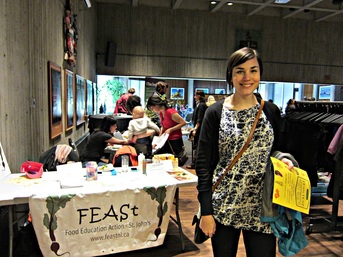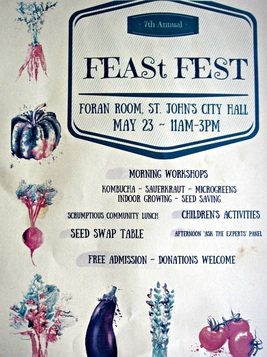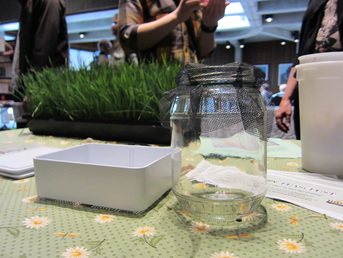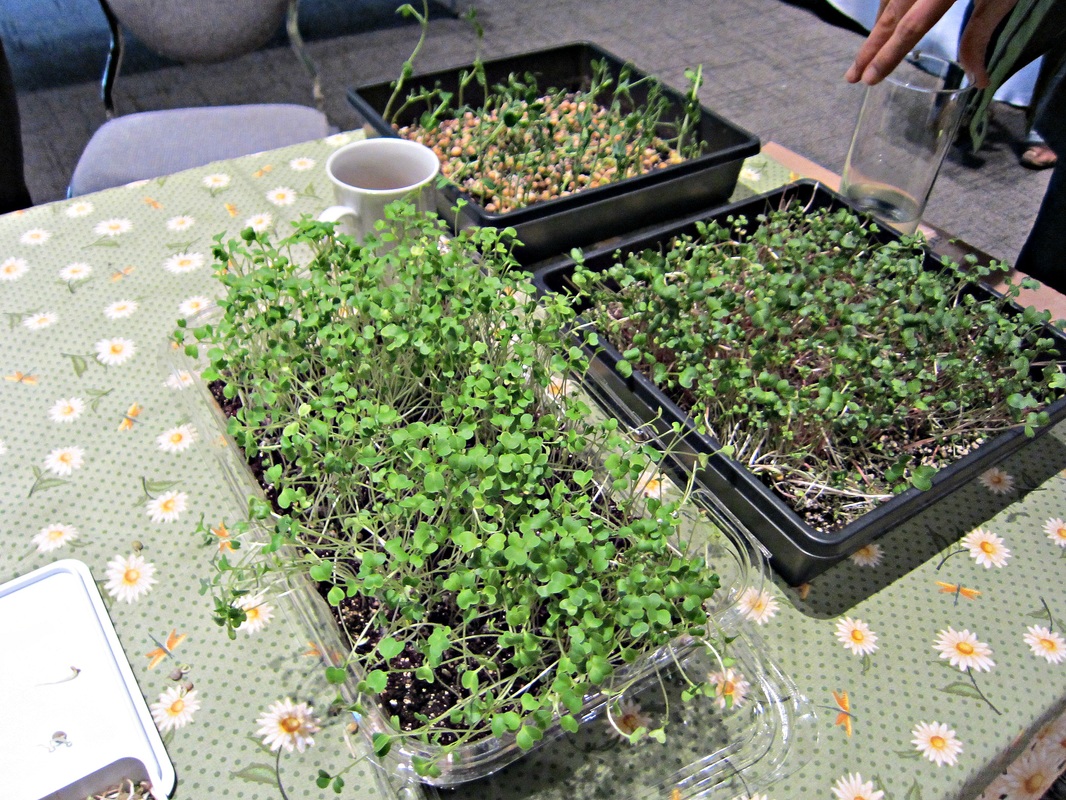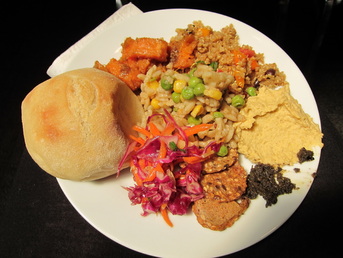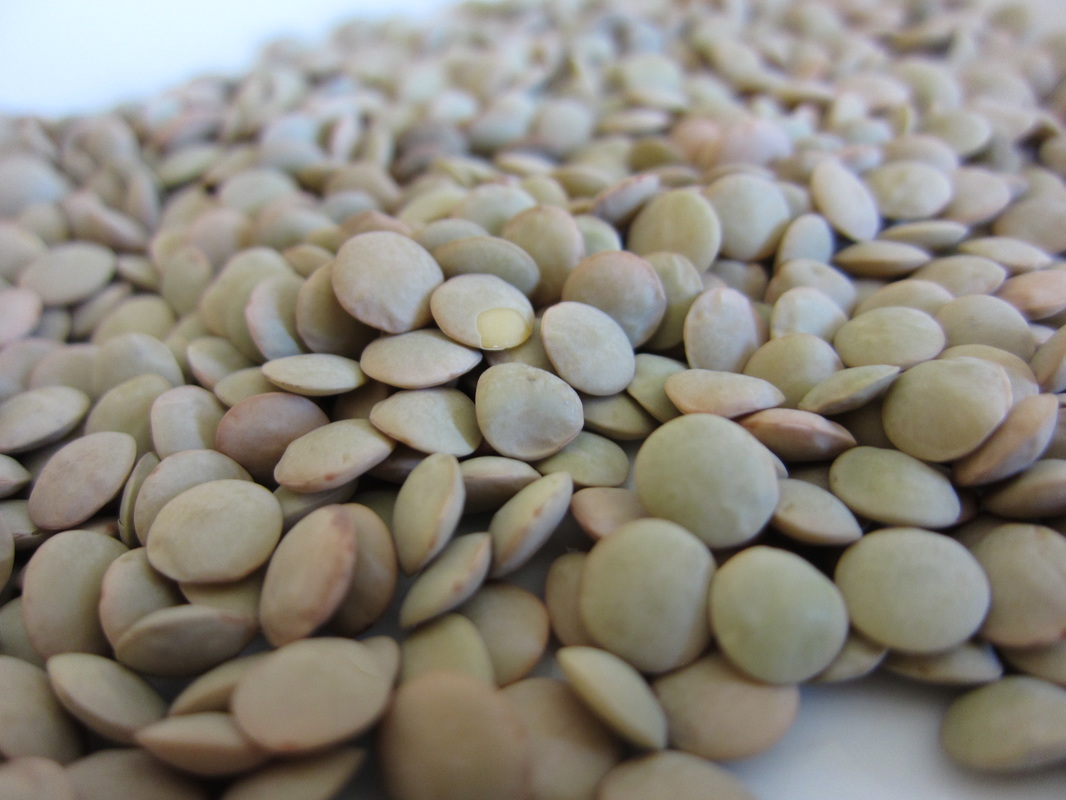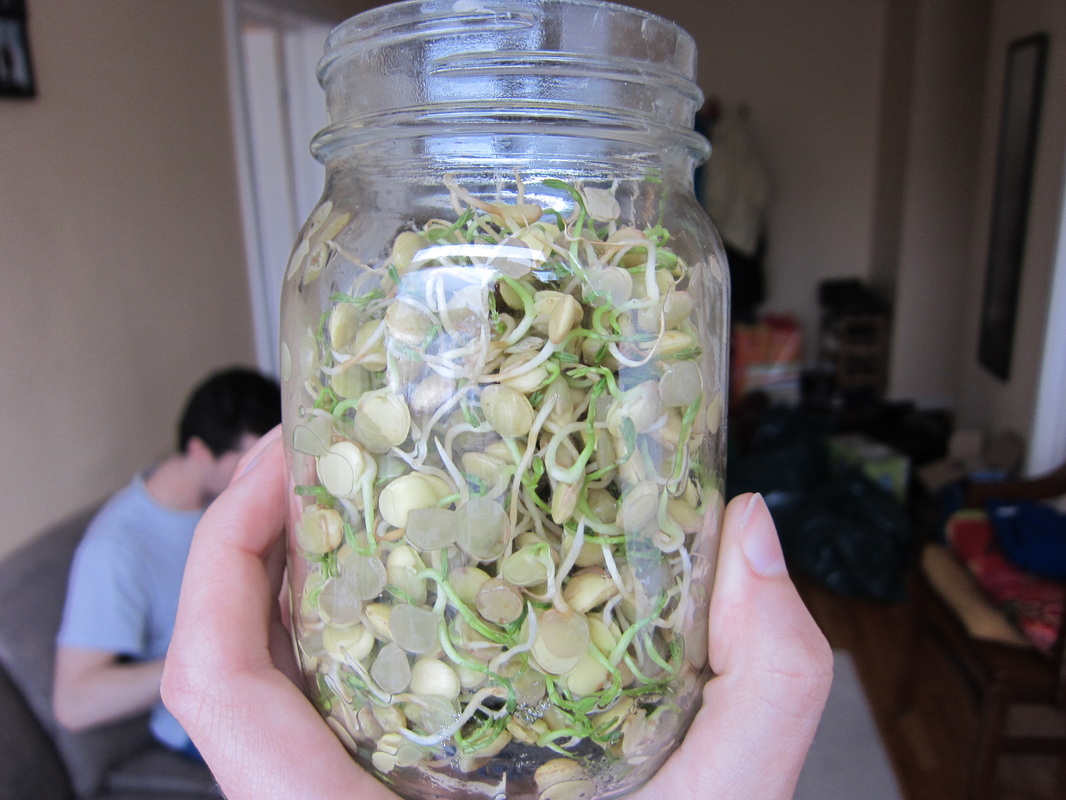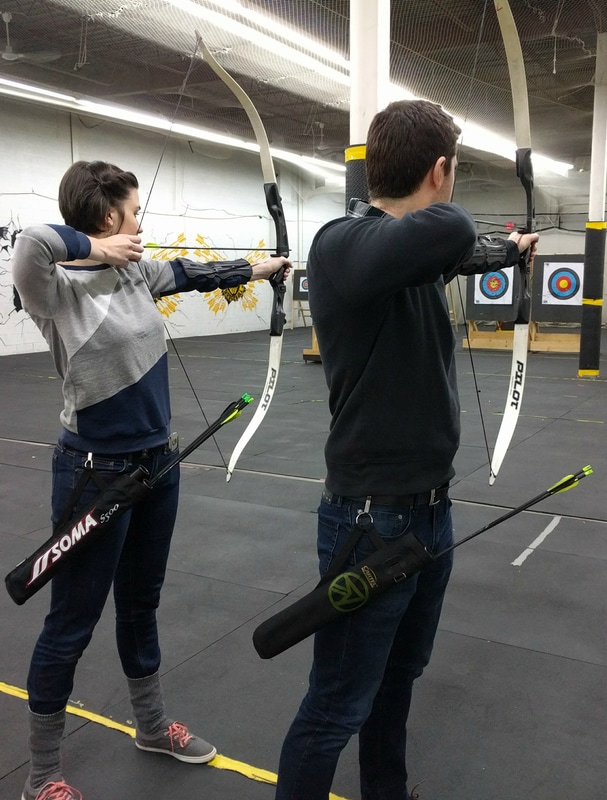The next station we visited was about sprouting and microgreens. Sprouting seeds and growing microgreens can be done on a much smaller scale than other productions, and both require a minimal investment when it comes to equipment. So naturally that piqued our interest.
The last workshop we attended was about fermenting food as a form of preservation. The girls at the table showed us how to make kombucha and sauerkraut. Kombucha is a fermented black or green tea, while sauerkraut is fermented cabbage. Learning about the processes, and seeing them in action, was eye-opening. One of the things that we liked about the entire event was that there were small groups at each station so the attendees were fairly comfortable asking questions.
Then it was time for the community lunch! There were lots of fresh, local, homemade items on offer and it was set up in a buffet style. It was one of those meals that was delicious to eat and we felt energized afterwards.
However, after leaving the event on Saturday, we were motivated to start some sort of growing project. So out of all of the things we learned about on Saturday, we picked the one that involved the smallest investment of time and money - sprouting! On Sunday, we started our own little project sprouting lentils and we opted to go for the most basic method which requires a mason jar, an elastic band, some mesh, and some seeds.
Sprouting involves
1) rinsing your selected seeds;
2) soaking them in water in your mason jar contraption for 8-12 hours (times vary based on the seed);
3) letting them air dry for a few days, rinsing them 2-3 times per day; and
4) putting them in sunlight for 12-24 hours after they start sprouting to finish off their growing process.
And here are the results:
Lately, we have been watching a show on Netflix called Chef's Table which ties nicely into the urban gardening/fresh food movement. A different chef is featured every episode and while all of the chefs are different, they are all interested in high quality ingredients and where the ingredients comes from. It is worth a watch, and has given us some extra motivation to think more about local, sustainable food - in addition to what we learned at FEASt Fest.
Overall, we thoroughly enjoyed FEASt Fest on Saturday and took away a lot of useful information. Here are a few more photos:
